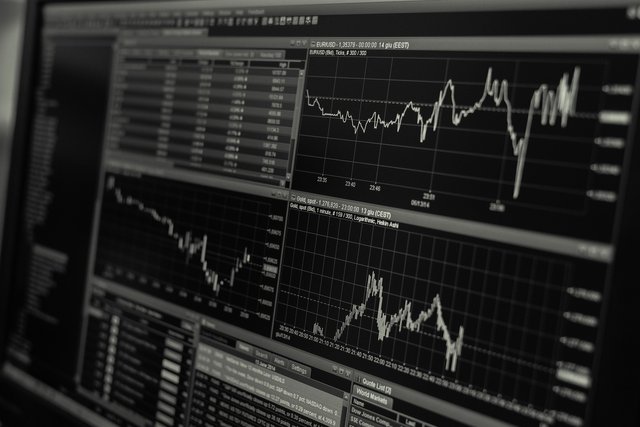Indices play a major role in financial markets. We have all seen the talking heads at CNBC, BloombergTV and other financial television station commenting and discussing what S&P500 has done recently and what it will do in the future. But why are indices so important?
When trying to measure how well a particular market has done in the past day, month or year, we need some method to do so. One way is to take every stock on the market (if we are talking about equity markets) and calculate the average return of the market by taking an average of all individual stock returns. But this method has its flaws.
Using an equal-weighting method will show us how an average stock in the market has done, but that does not represent the market well. Since the number of smaller companies is an order of magnitude larger than the number of large companies, this method of equal weighting (taking an average of all the returns) will put too much emphasis on small stocks.
This is a major issue since by definition investors have a lot more invested in large companies compared to small ones - looking at the size of the largest 10 US companies shows a market capitalization of 4.5 trillion US dollars which represent about 20% of the whole US equity market. This means that all investors combined (by definition) hold about 20% of their equity investments in the top 10 stocks.
When measuring the performance of the market we should, therefore, put more emphasis on the larger companies/stocks/assets that have larger market capitalizations and represent a larger chunk of the investors’ portfolios.

This is where market-cap weighting comes in. To properly measure market’s return we must simply include the individual assets’ size into the calculation. When we took an equal weighted average before we effectively divided assets return with the number of assets and then summed everything up. In the case of market-cap weighting, we multiply the asset’s return with its weight (size) in the market.
Let us look at a simple example. Imagine we have only two assets with combined market capitalization of 100 billion US dollars. One of them has 60 billion market cap while the other has 40 billion market cap. It is easy to see that we must use 60% of the first asset’s returns and 40% of the second asset’s return to calculate the true return (or performance) of the whole market. If the first asset went up 1% and the other 2%, first one contributes 0.6% (60% x 1%) to the market while the second one contributes 0.8% (40% x 2%) which means that in this case, the market gained 1.4% in value.
Now imagine that the price of the first asset drops so much that its market cap is only 30 billion, and the price of the second asset increases to reach 70 billion market cap. A nice thing about holding the “market portfolio” is that you do not need to adjust your allocation when the prices change - you still have exposure to the whole market even though prices of the two assets in the example have changed a lot.
This is one of the major reason why passive investors like simple indices that use market-cap weighting. There is no need to rebalance because of the market movement and therefore transaction costs are low (or even non-existent). The rise in ETFs (Exchange Traded Funds) in the past few years is one example of the widening use of indices. These investment funds that trade on exchanges like they are stocks usually use an index provider that calculates allocation to the individual asset in the ETF’s investment universe.
But this is only a small part of the usability of indices. When large pension funds and other institutional investors try to hedge their risks they often use indices for underlying assets when “creating” financial derivates that give them required exposure. Most of the derivates market is based on some type of indices. S&P500 for example influences derivatives with more than 7.8 trillion US dollars in value.

As the crypto market develops there will be a rising demand for indices such as S&P500 for the equity market. Hedge-crypto.com is developing them.
But there is a slight problem with calculating indices on crypto markets. Law of one price does not (yet) hold on crypto markets. Efficient market hypothesis, a widely adopted theory amongst financial theoreticians and also practitioners, states (among other things) that if there is a possibility of a risk free trade traders will compete for that trade and essentially eliminate the risk free opportunity. If a company’s stock trades on multiple exchanges the price of that stock should be the same on both exchanges - if it was not, traders would buy the stock on the exchange where it is cheaper and sell it on the exchange, effectively arbitraging the difference away.
Currently, the price of most cryptocurrencies can vary significantly from exchange to exchange. There are some frictions that make it hard for arbitrageurs to remove the inefficiency from the market and will, therefore, take some time before the law of one price holds in the crypto markets.
In the mean time, there will be even stronger demand for professionally built and maintained crypto indices. We at Hedge-crypto.com are working hard to bring you professionally designed and maintained indices that will enable you to get inexpensive exposure to the crypto markets - either on the long side or short, with or without leverage. All from one platform. Join us in taming the volatility and inefficiency of the crypto markets. Let us make them better together.
Congratulations @hedgetoken! You have completed some achievement on Steemit and have been rewarded with new badge(s) :
Click on any badge to view your own Board of Honor on SteemitBoard.
For more information about SteemitBoard, click here
If you no longer want to receive notifications, reply to this comment with the word
STOPDownvoting a post can decrease pending rewards and make it less visible. Common reasons:
Submit